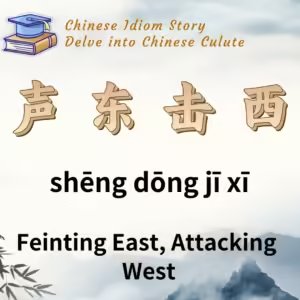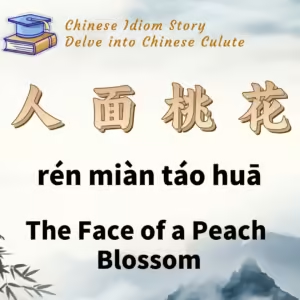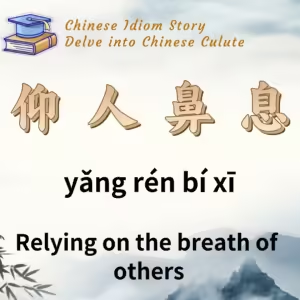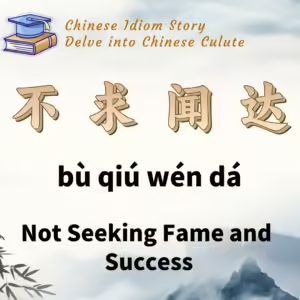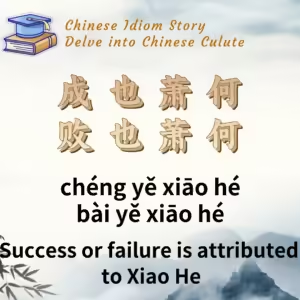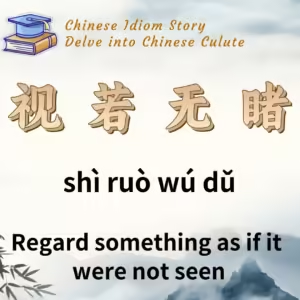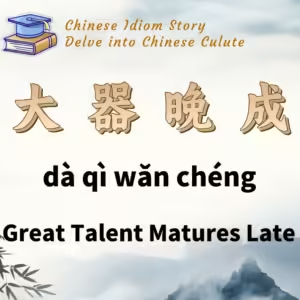
Chinese Idiom: 大器晚成 (Da Qi Wan Cheng)
English Translation: Great Talent Matures Late
pīn yīn: dà qì wǎn chéng
Idiom Meaning: This idiom describes how individuals with great talent often achieve fame later in life. It is also used to comfort those who have not yet achieved success. “大器” refers to someone with great talent.
Historical Source: “Records of the Three Kingdoms”
Idiom Story:
During the late Eastern Han Dynasty, Cui Yan initially served as a guest under Yuan Shao and later followed Cao Cao. Both Yuan Shao and Cao Cao held him in high regard.
Cui Yan had a passion for martial arts from a young age, particularly enjoying fencing. It was not until he was 23 years old that he began studying under a teacher, focusing on texts like the “Analects of Confucius.” Through diligent and hard study, he quickly became knowledgeable.
While serving Yuan Shao, Cui Yan observed that Yuan Shao’s soldiers were excessively violent, often digging up graves and leaving corpses exposed. Cui Yan advised Yuan Shao to order his soldiers to stop such behavior. Yuan Shao, pleased with his advice, not only heeded his suggestion but also appointed him as the Cavalry Commandant.
When Cui Yan joined Cao Cao, he served as the Secretary of the Wei State. On one occasion, Cao Cao considered appointing his son Cao Zhi as the crown prince. Cui Yan firmly opposed this, arguing that the eldest son should traditionally be made the crown prince. Despite Cao Zhi being his niece’s husband, Cui Yan did not show favoritism toward his relative. This integrity earned Cao Cao’s admiration.
Cui Yan was also skilled at recognizing talent. His cousin, Cui Lin, was looked down upon by their relatives and friends for lacking reputation and achievements. However, Cui Yan, after careful observation, believed that Cui Lin had the potential for great success. He often said, “Those with great talent may take a long time to achieve their full potential. Cui Lin is such a person; he will surely achieve great success in the future.”
Indeed, Cui Lin later became the principal scribe of Jizhou, the Imperial Secretary, and served as Minister of Works under Emperor Wen of Wei, accomplishing many significant tasks.
From this story, the idiom “大器晚成” (great talent matures late) emerged, signifying that great talent often achieves success later in life.

